I Converted Book I of The Sequences Into A Zoomer-Readable Format
If I (a 19 year old male) texted "www.readthesequences.com" to my roommate, the probable outcome is that he would skim the site for under a minute, text back something like "seems interesting, I'll def check it out sometime", and then proceed to never read another word. I have another friend, one that I would consider a smart guy. He would consistently rank above me in our high school's math team, and he scored in the 1500's (≥3SD) on his SATs. The same dude did not read a single book during the entirety of his high school career.[1] Attention is one's scarcest resource, and actually reading something longer than a paragraph is a trivial inconvenience, especially for my generation. What, then, does manage to hold the fickle eyeballs of zoomers like me? Well, TikTok, mostly. However, there is one (very popular) genre of TikTok video worth investigating. In this genre of video, a Reddit post is broken into sub-paragraph chunks of text, and these chunks are sequentially rendered onscreen while a text-to-speech program reads them to the user. The text is overlaid upon a background video, which is either gameplay from the mobile game Subway Surfers, or parkour footage from Minecraft. The background gameplay provides engaging novelty to the user's visual cortex, while the synthetic voice ensures that the user doesn't have to go through the hard work of translating symbols into sounds. Really, it's all quite hypnotizing. The fact that these videos are often recommended by TikTok's algorithm implies that they are among the most-engaging videos that our civilization produces. Therefore, to reduce the effort-cost of reading the sequences, I gave the TikTok treatment to Book I ("Map and Territory") of Rationality: From AI to Zombies. (Update: Circa 2023-02-09, all these links are dead. This was in response to an AWS alert notifying me that 85 gigabytes (or more) of data had been transferred out. I really shouldn't have used a public S3 bucket to serve video in the first pl
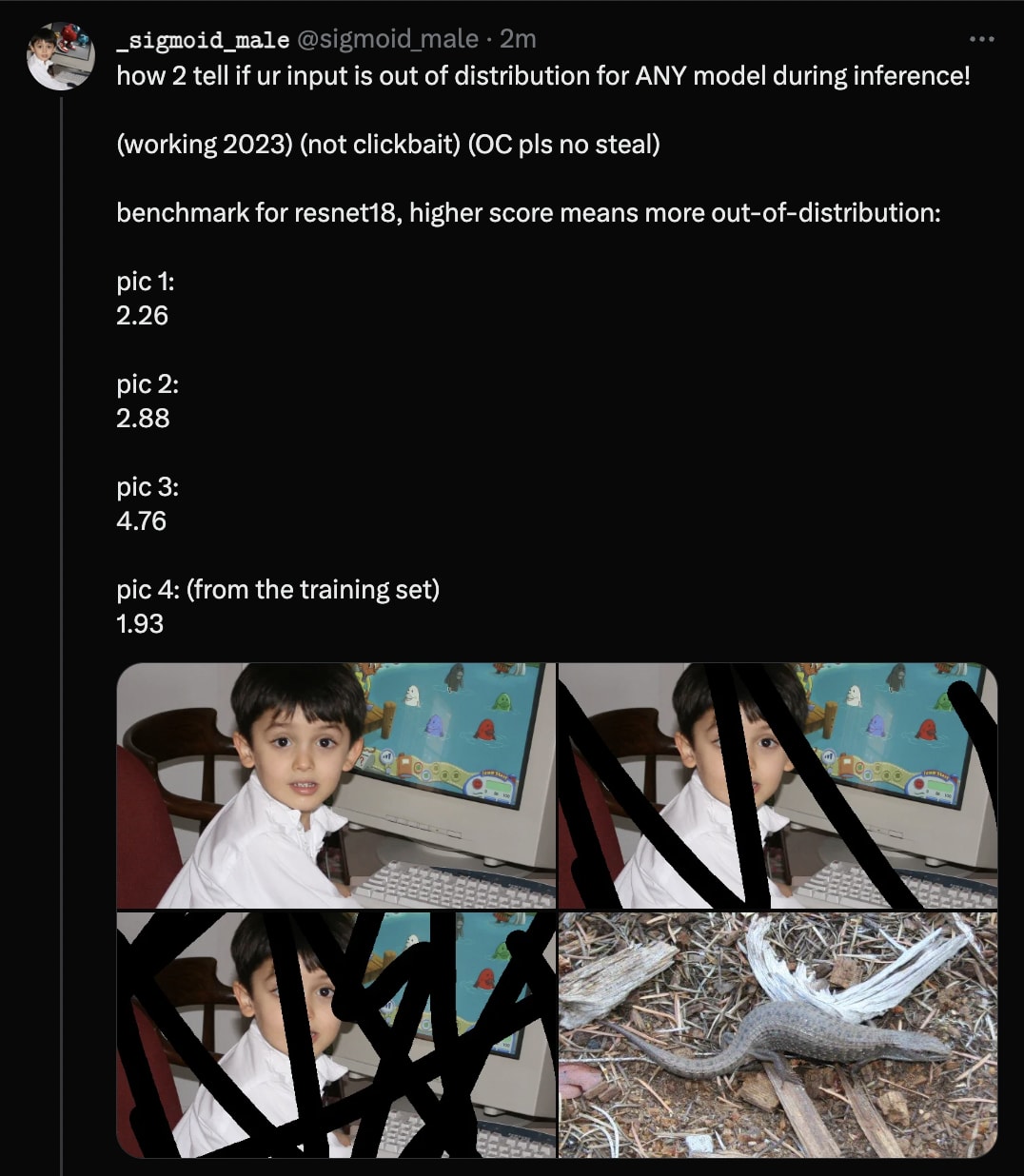

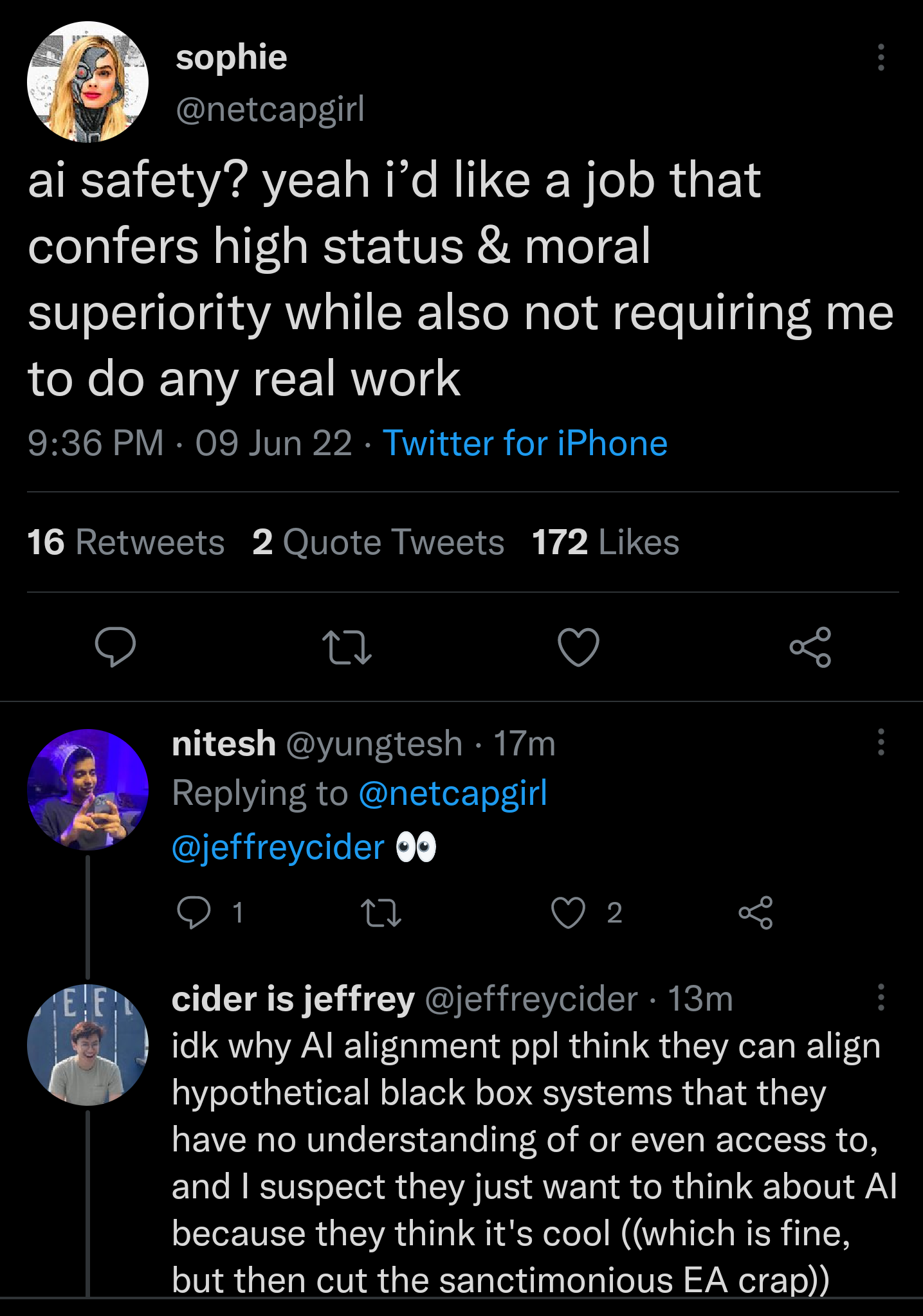
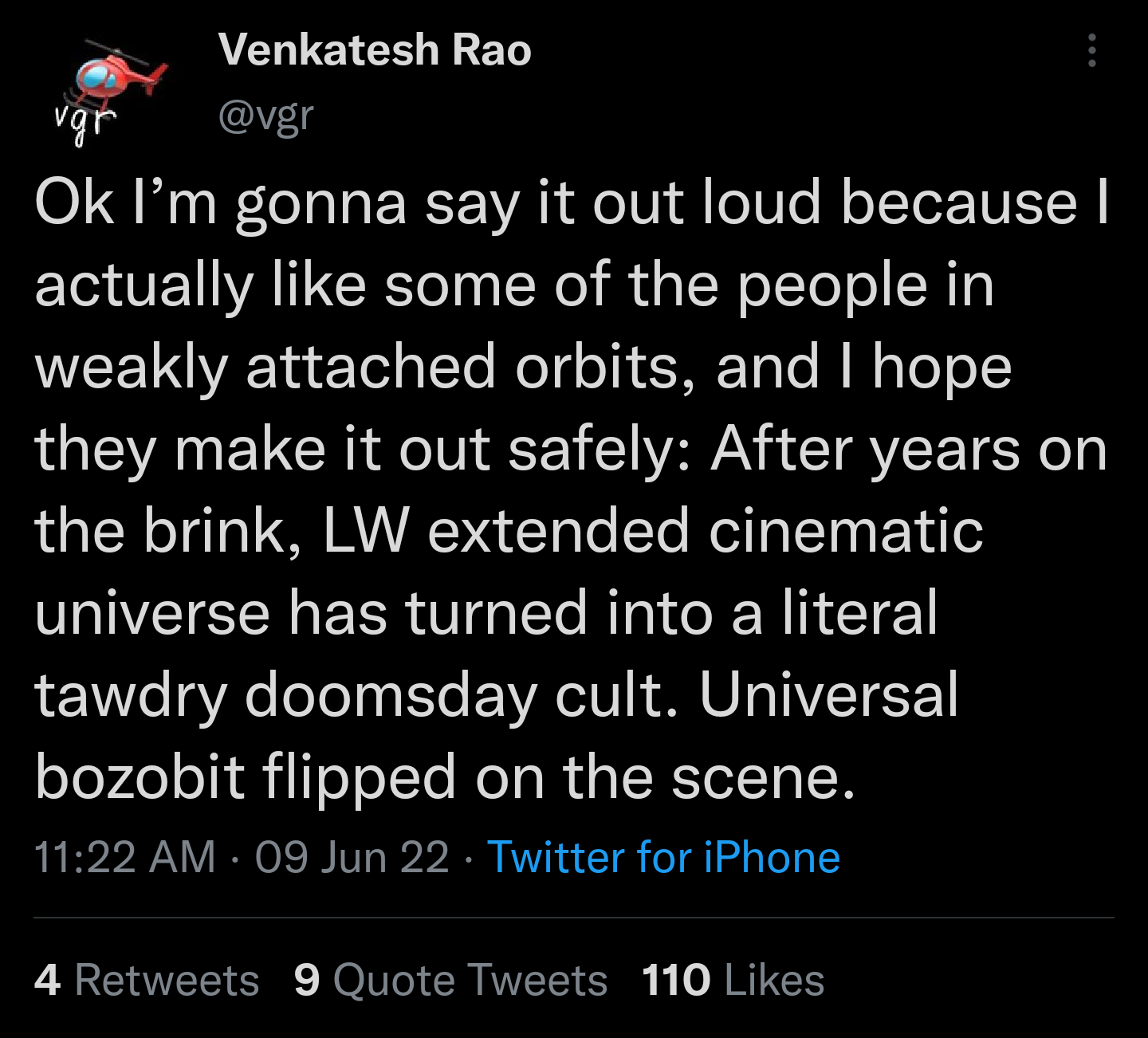
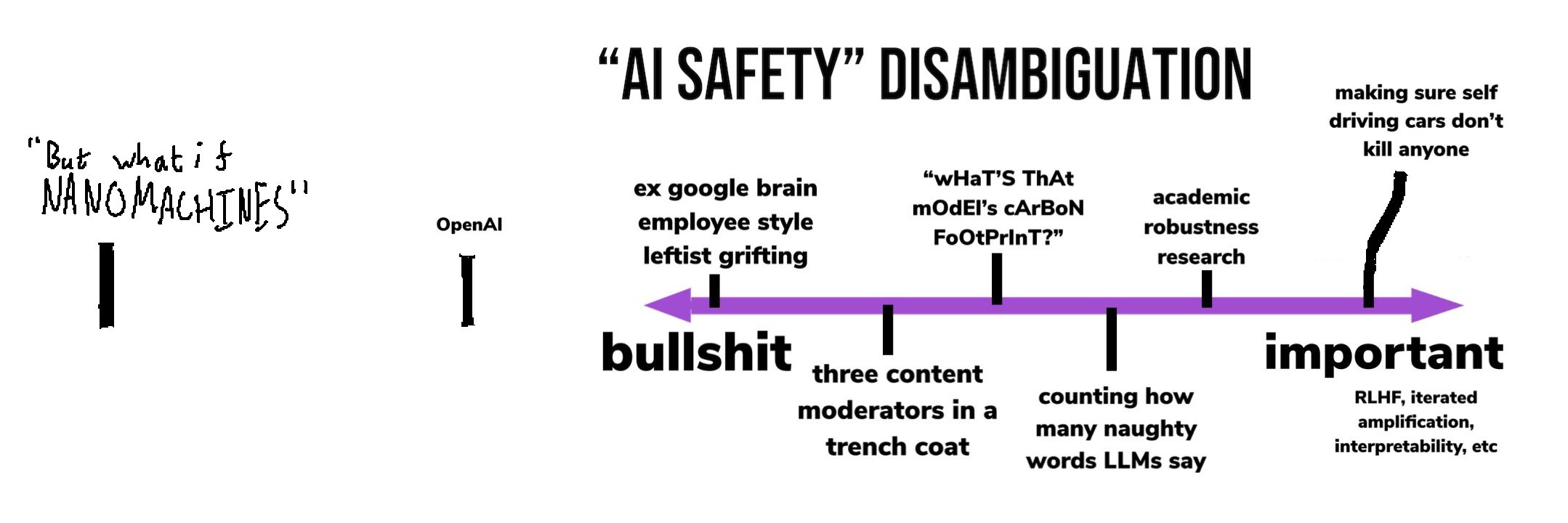
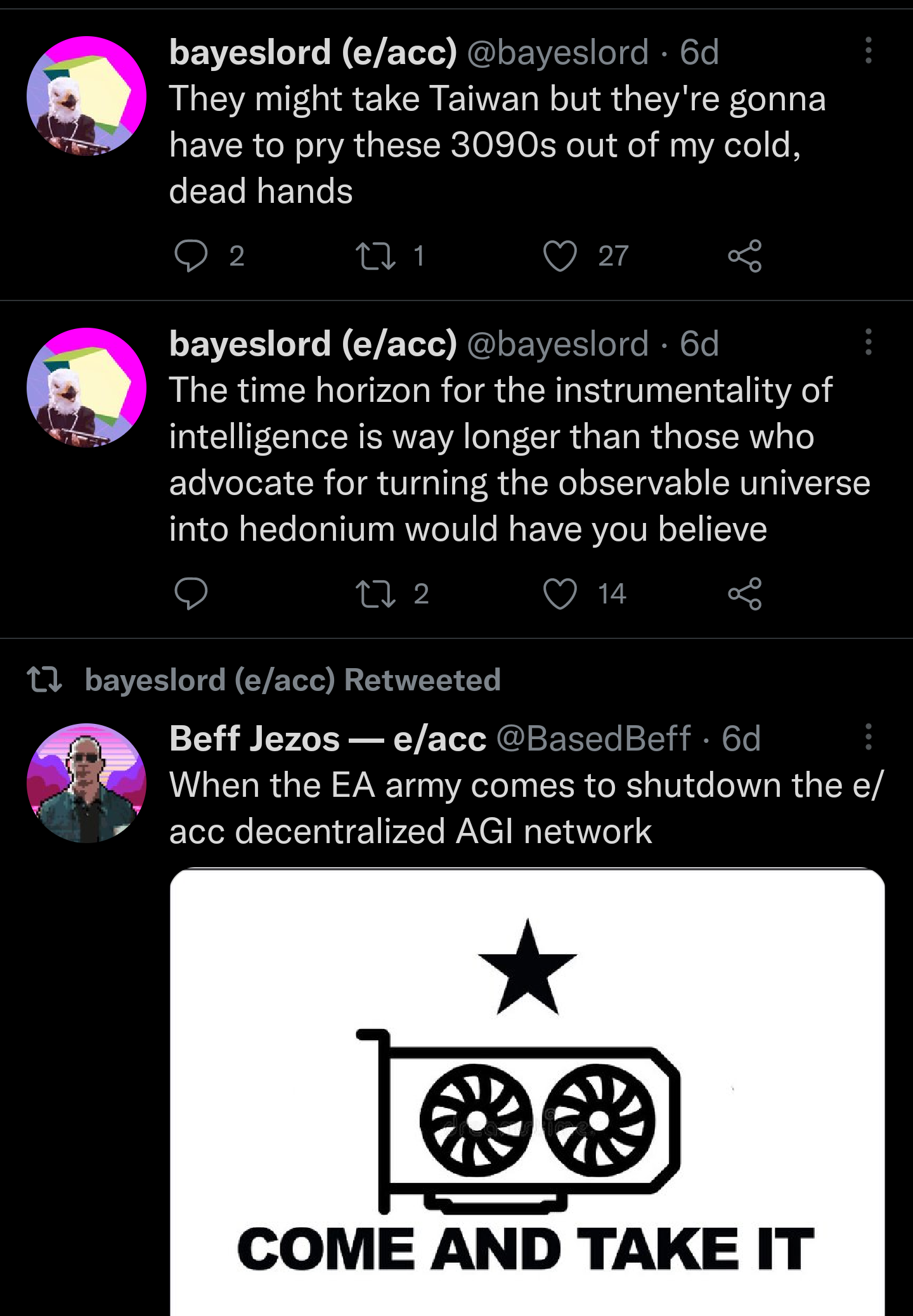
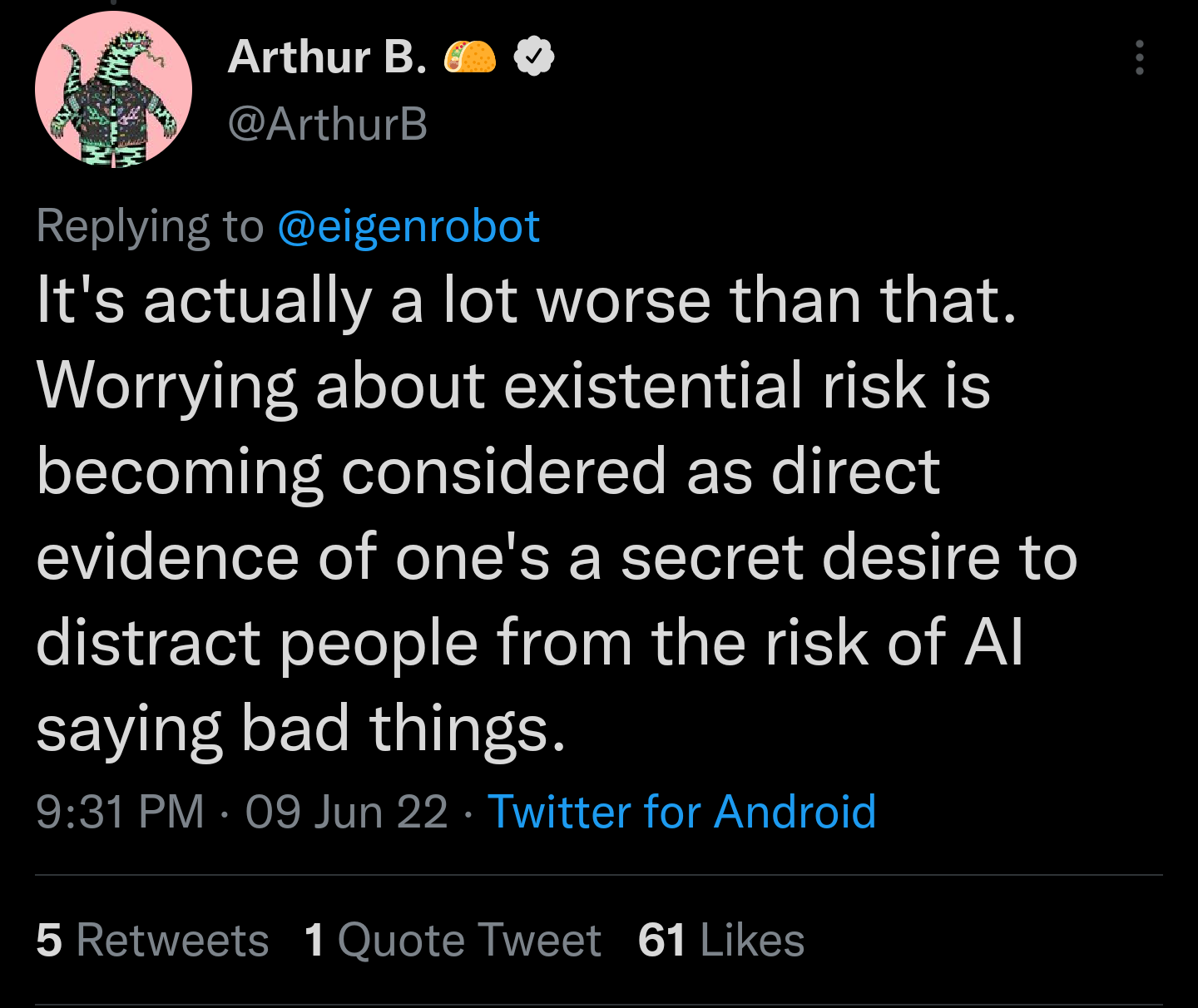 (That one wasn't actually a critique, but it did convey useful information about the state of AI Safety's optics.)
(That one wasn't actually a critique, but it did convey useful information about the state of AI Safety's optics.)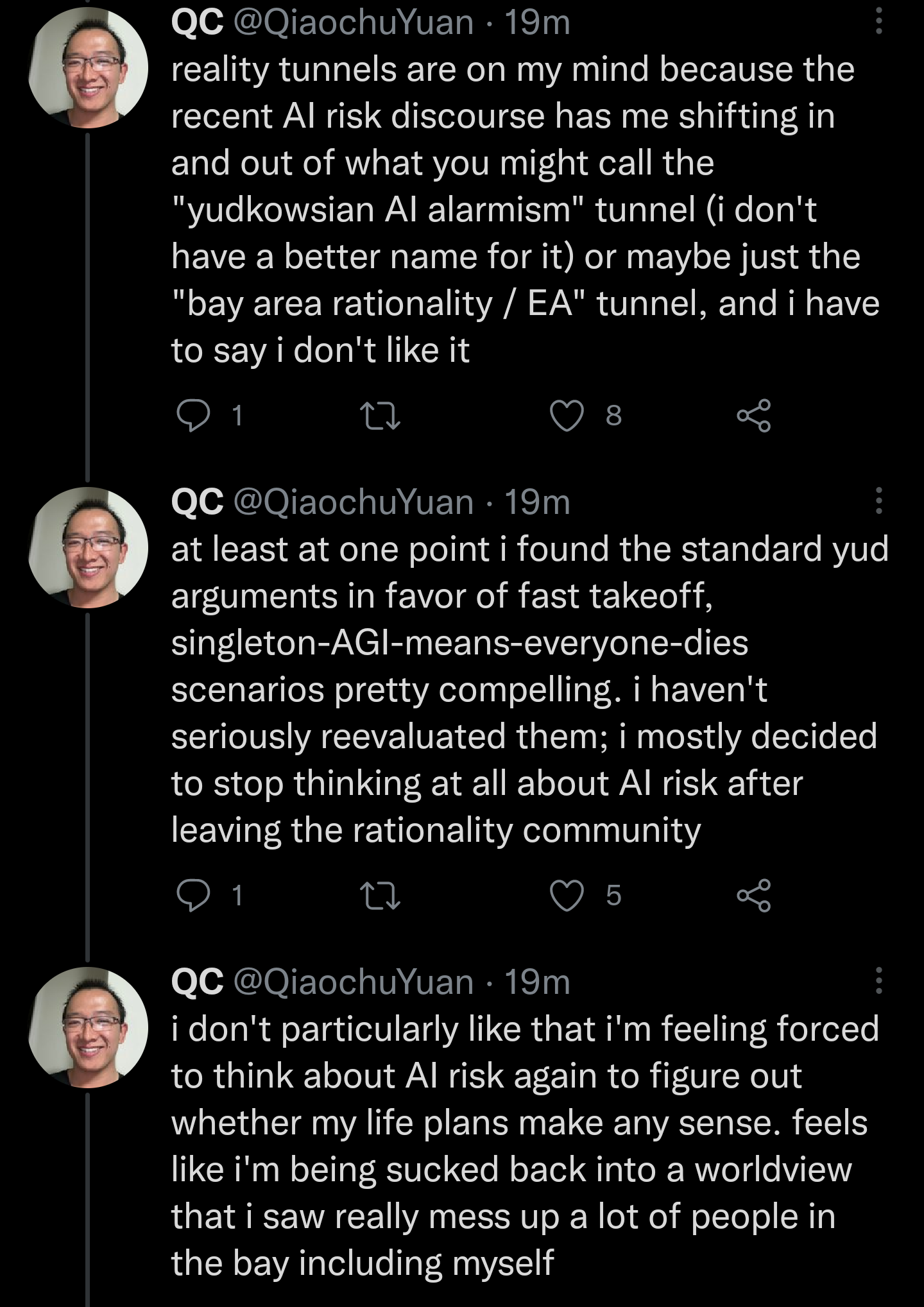
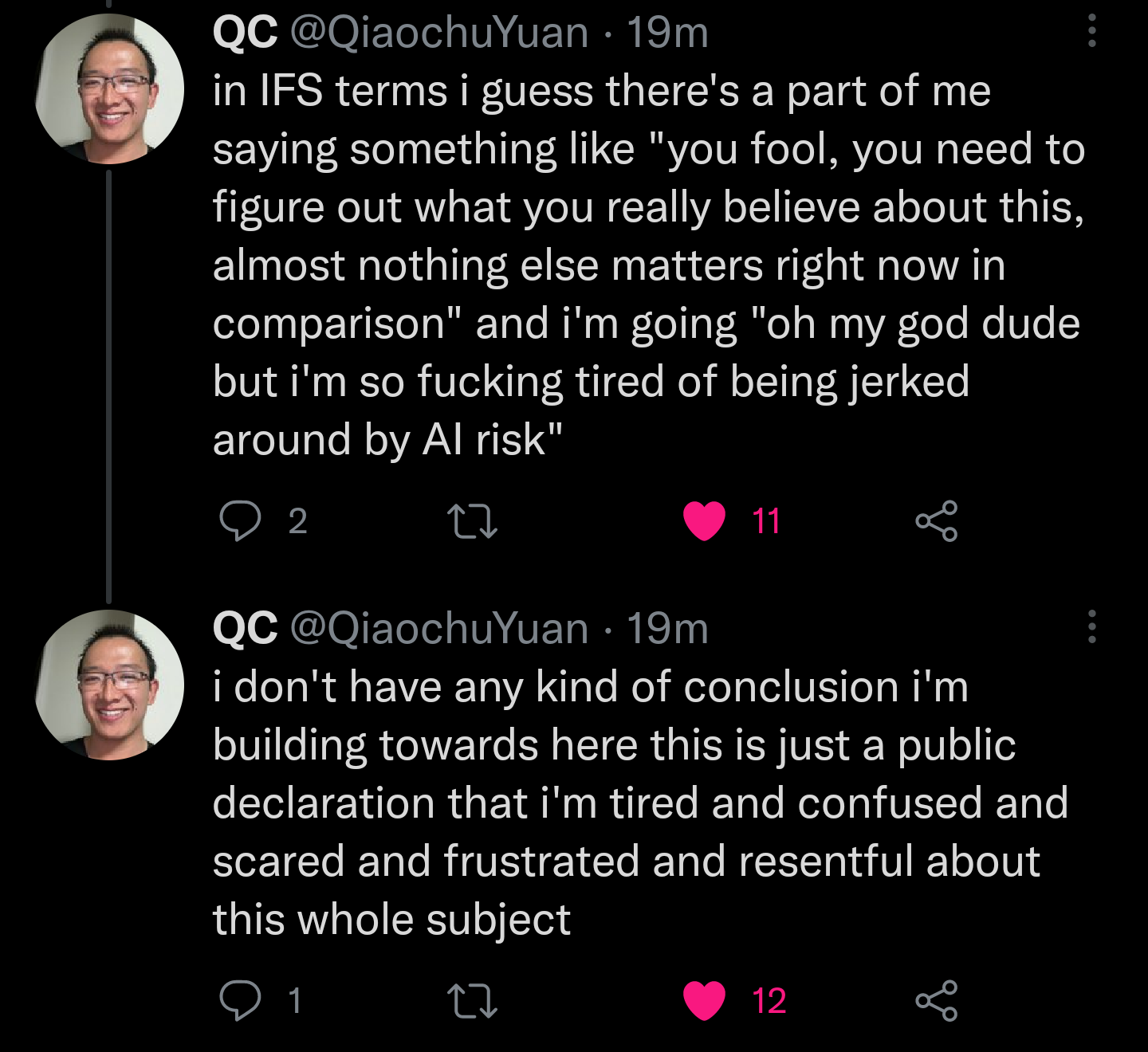
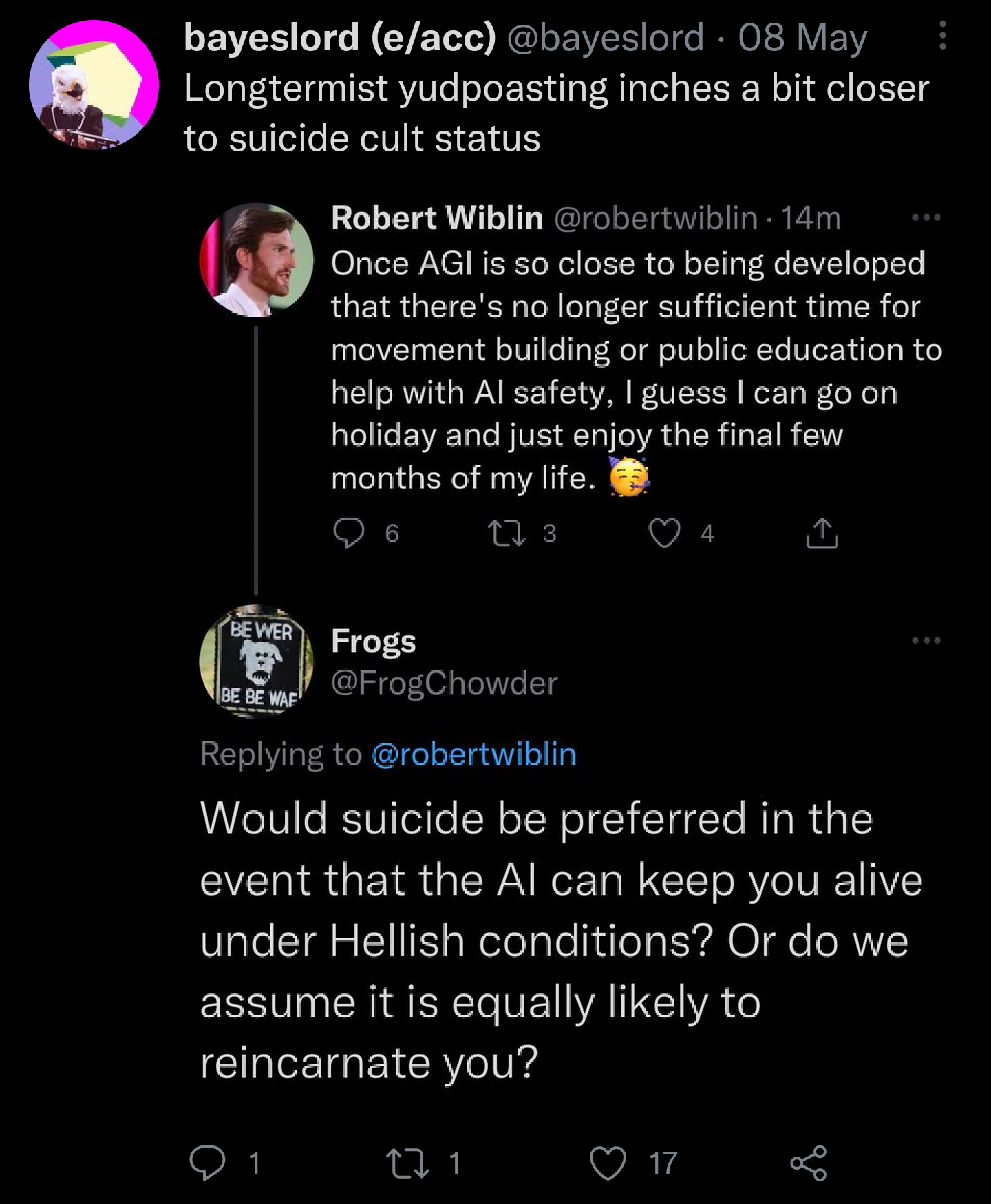
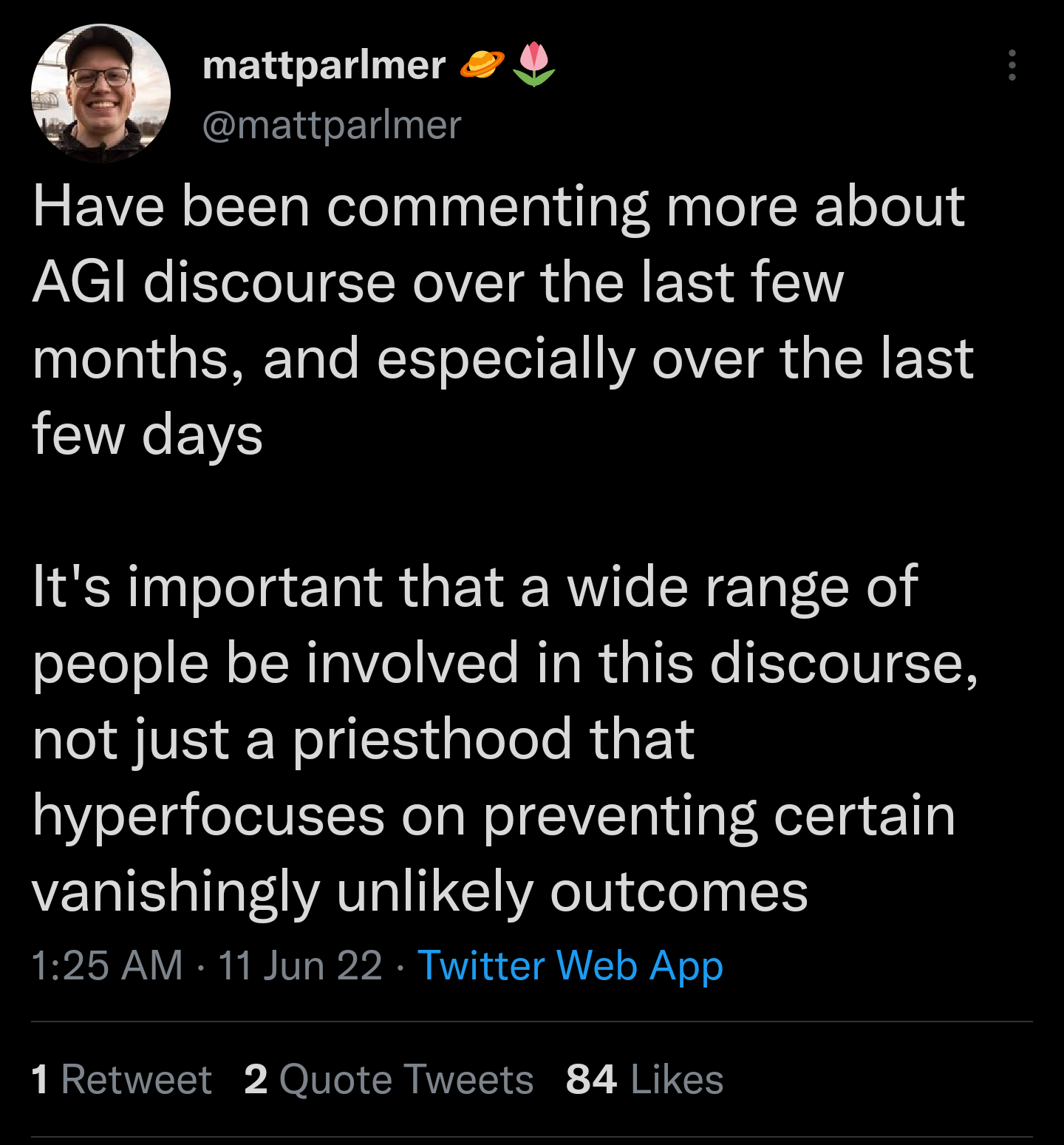
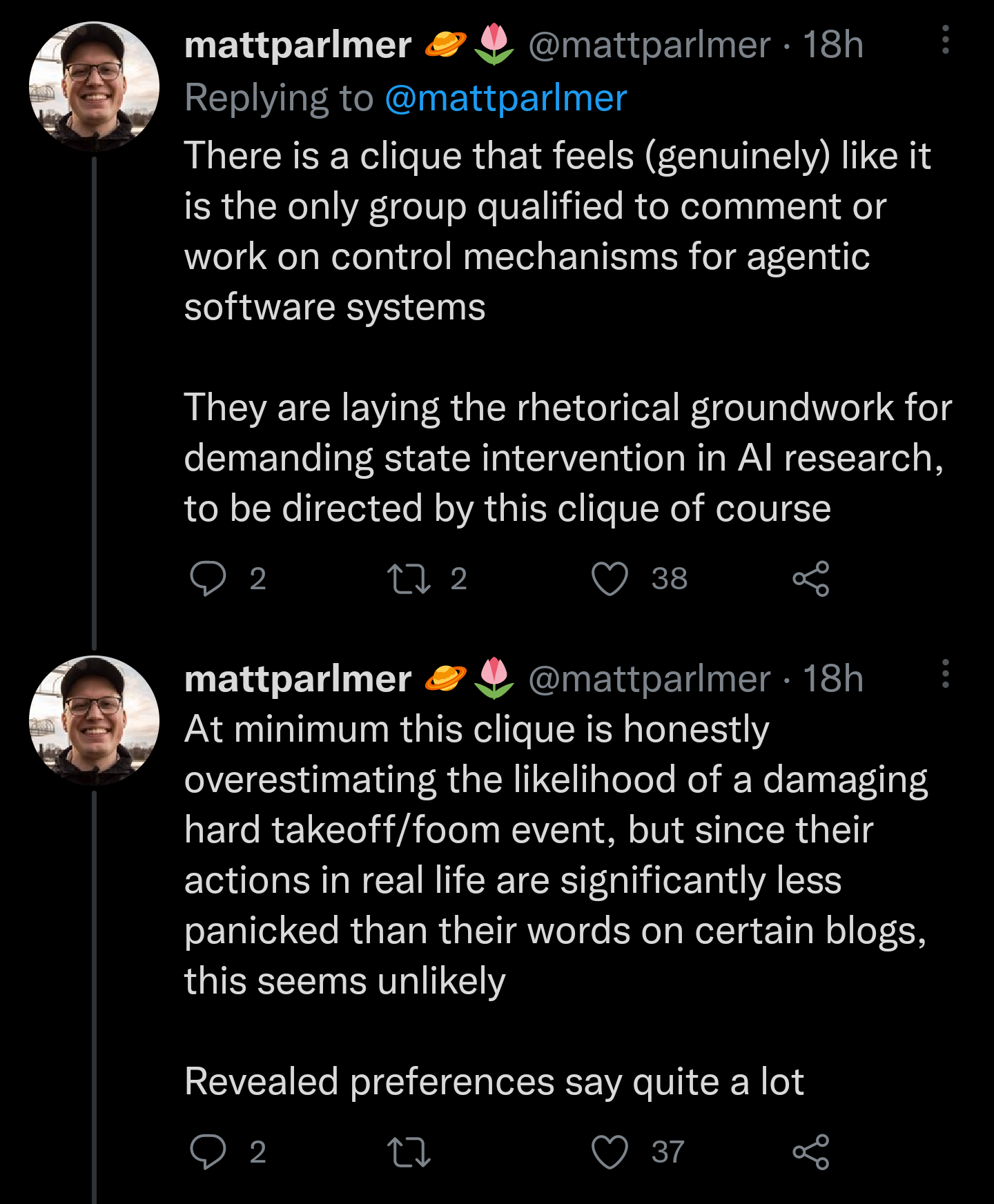
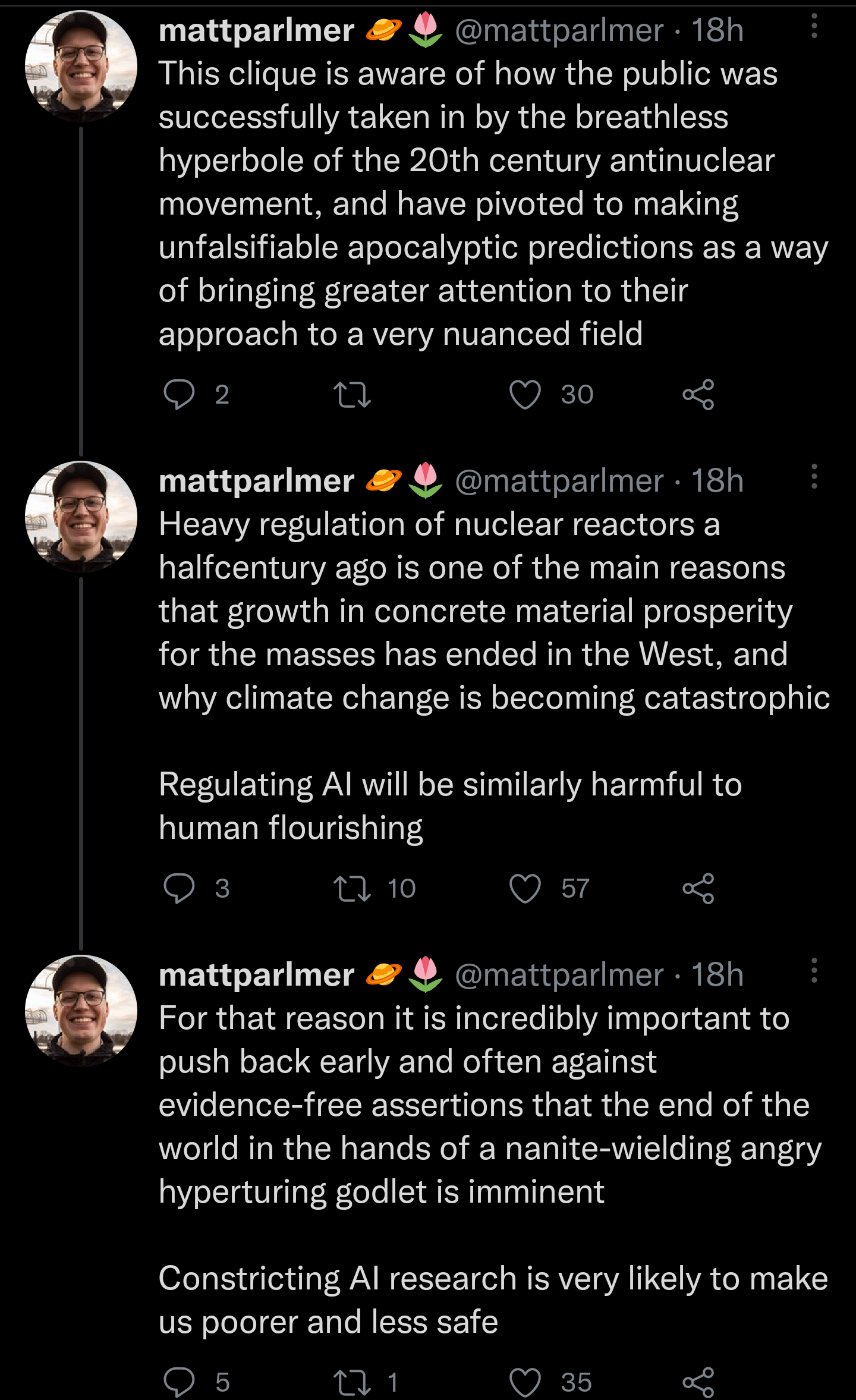

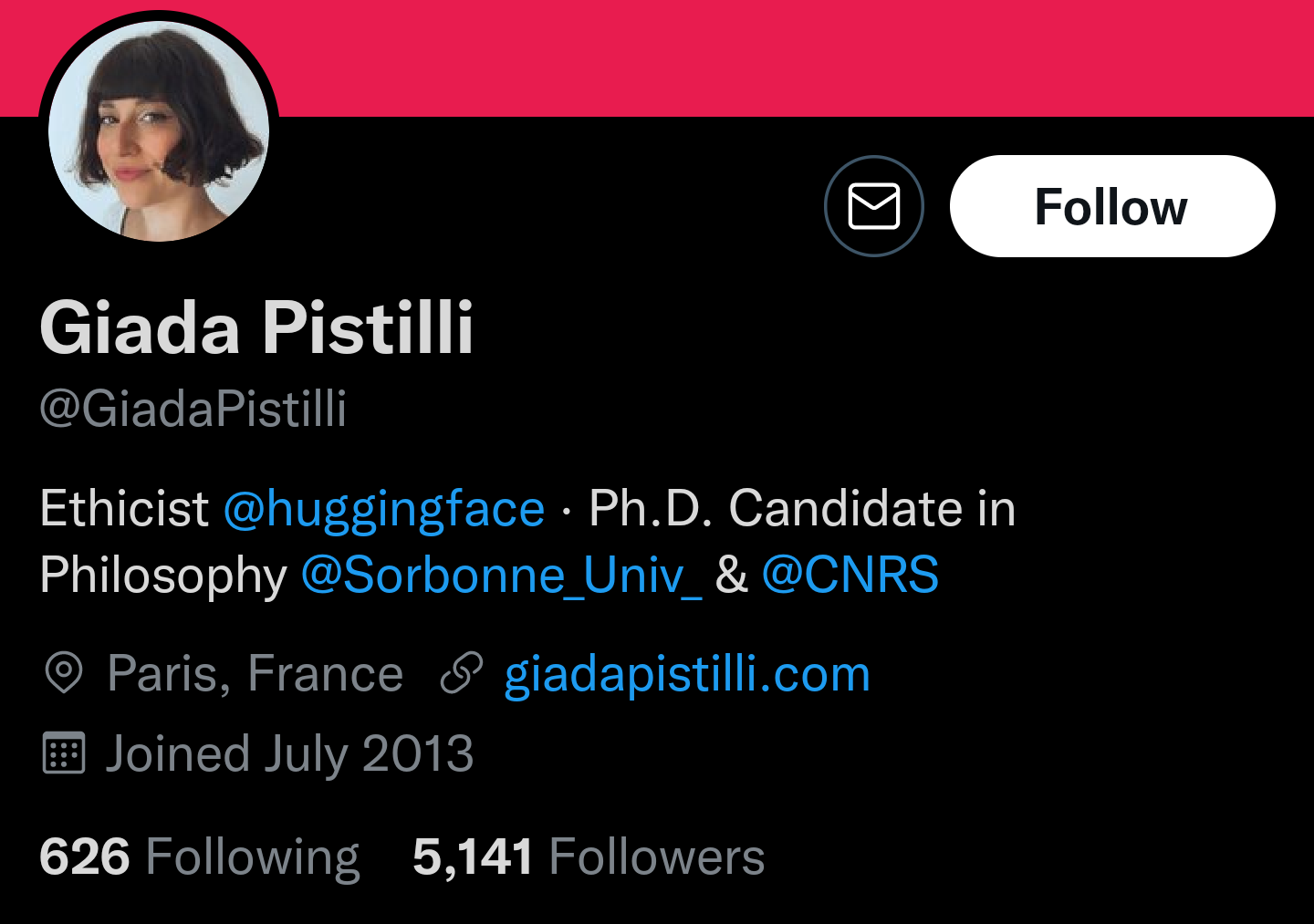
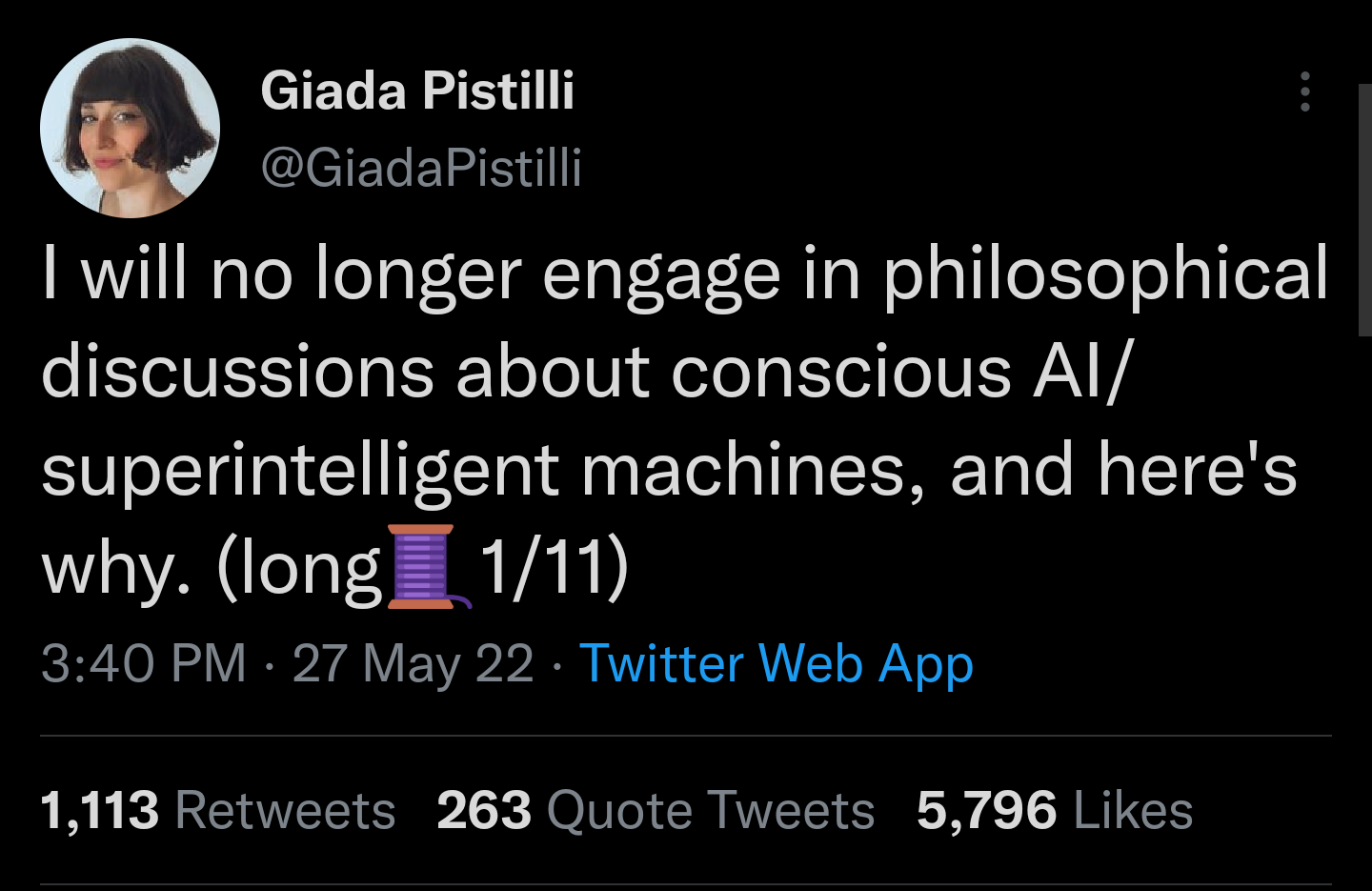


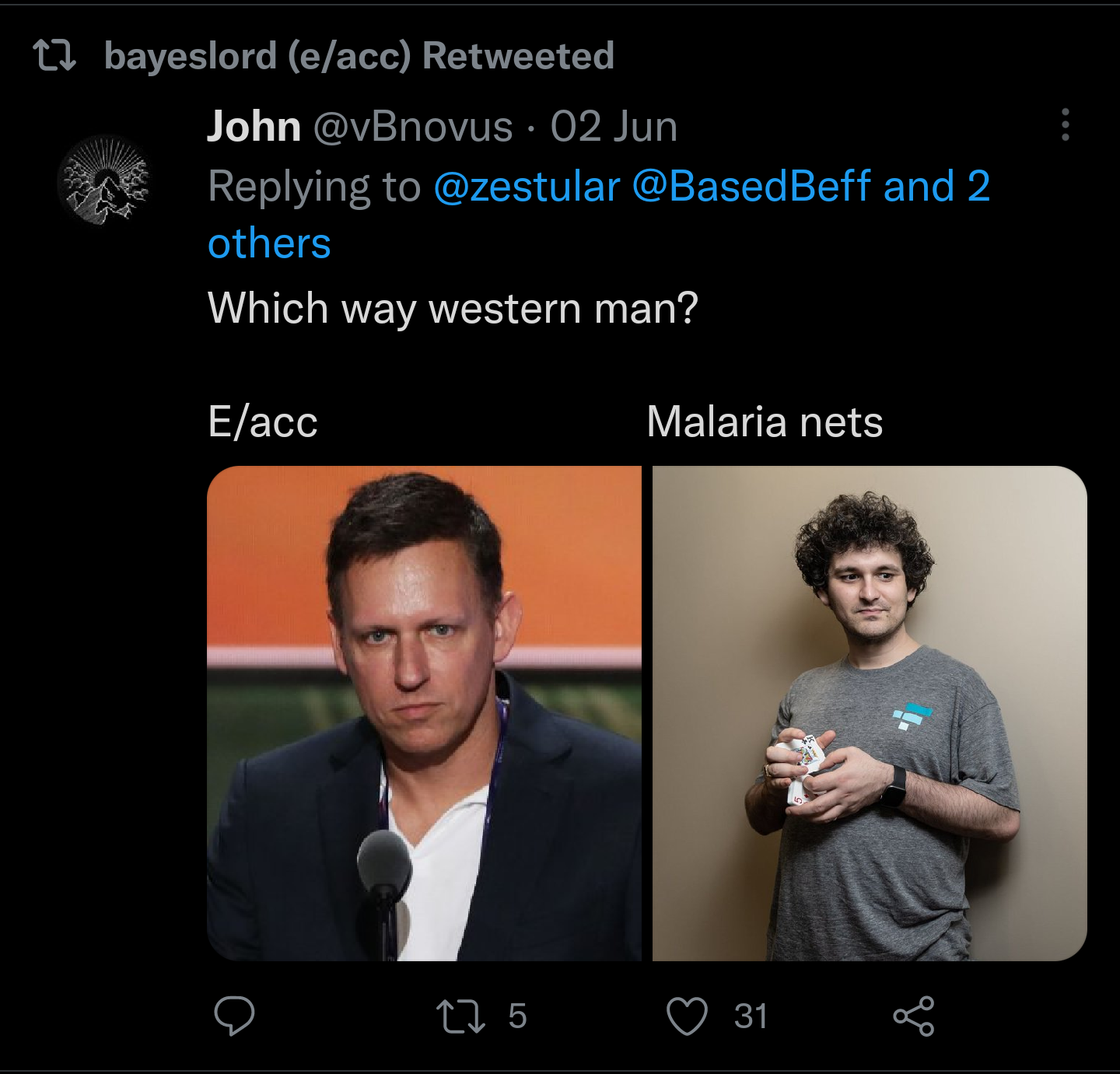

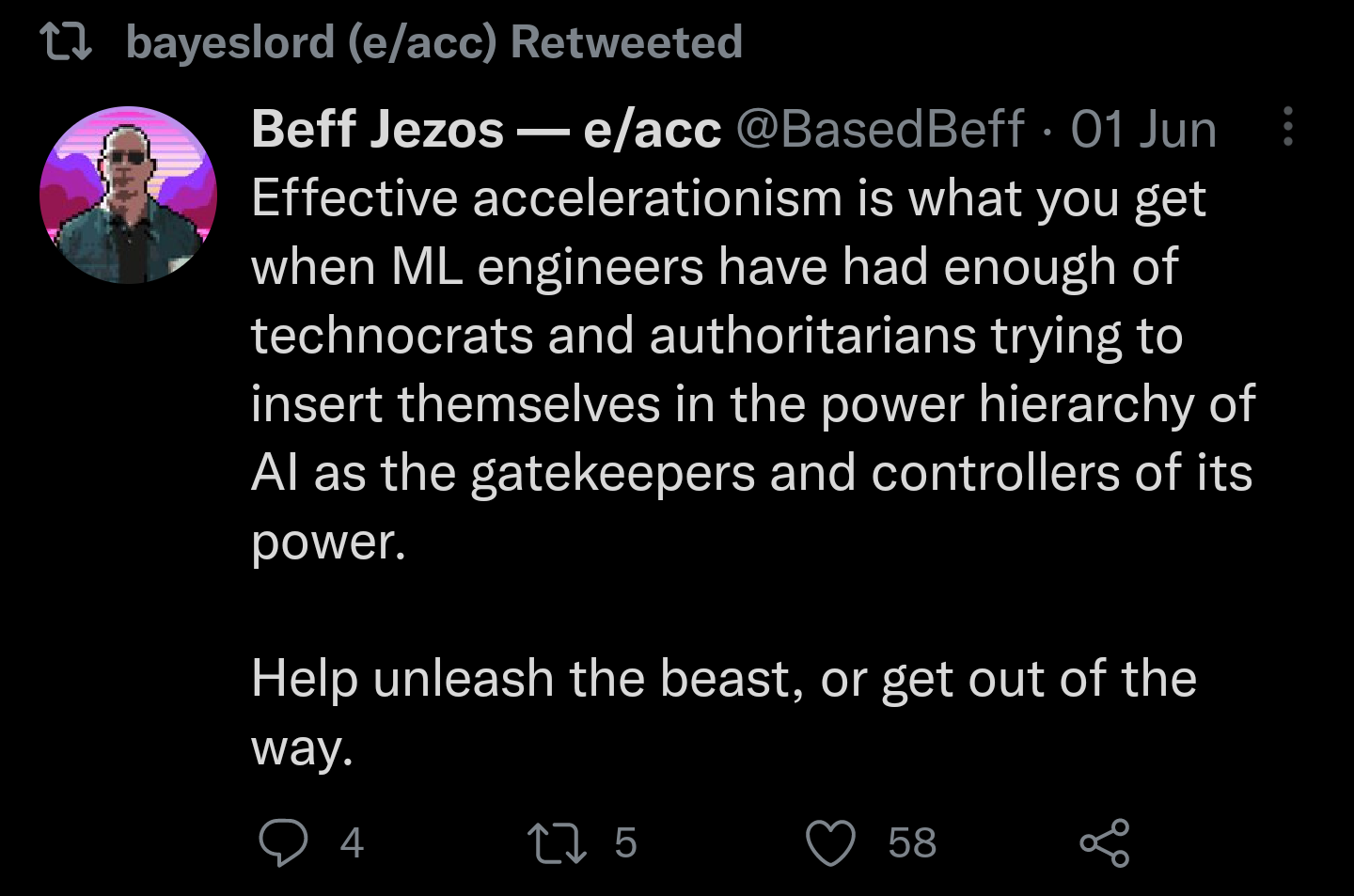
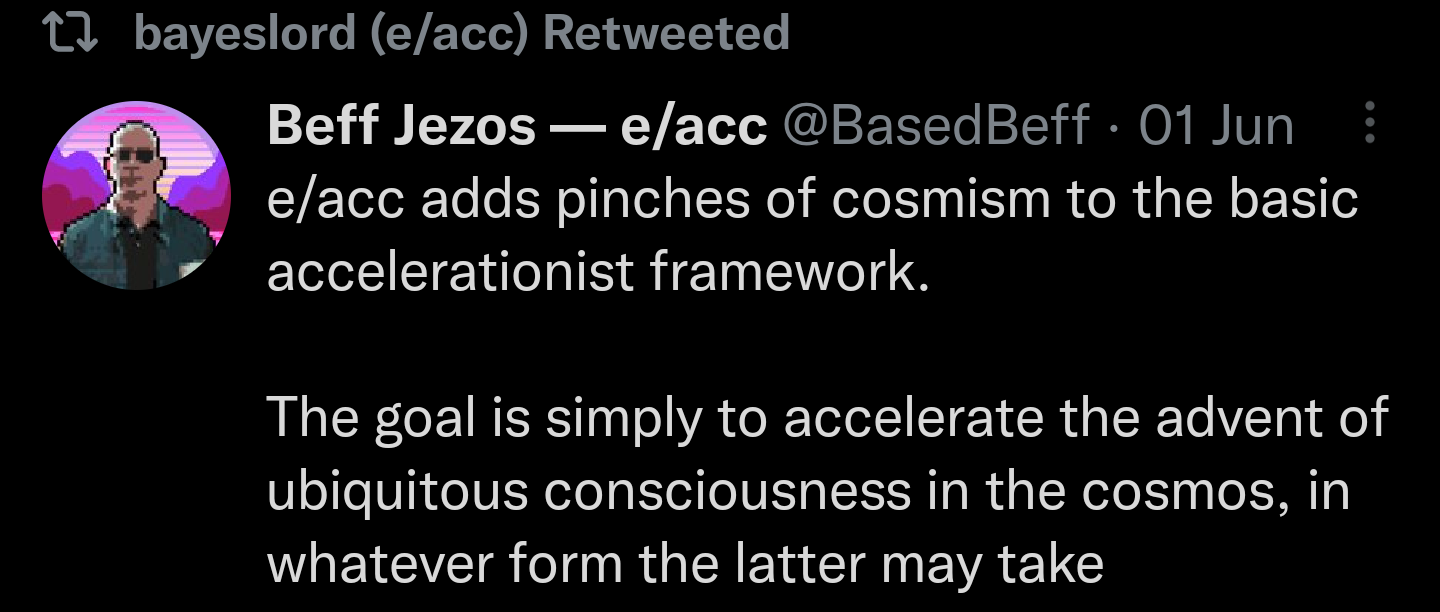
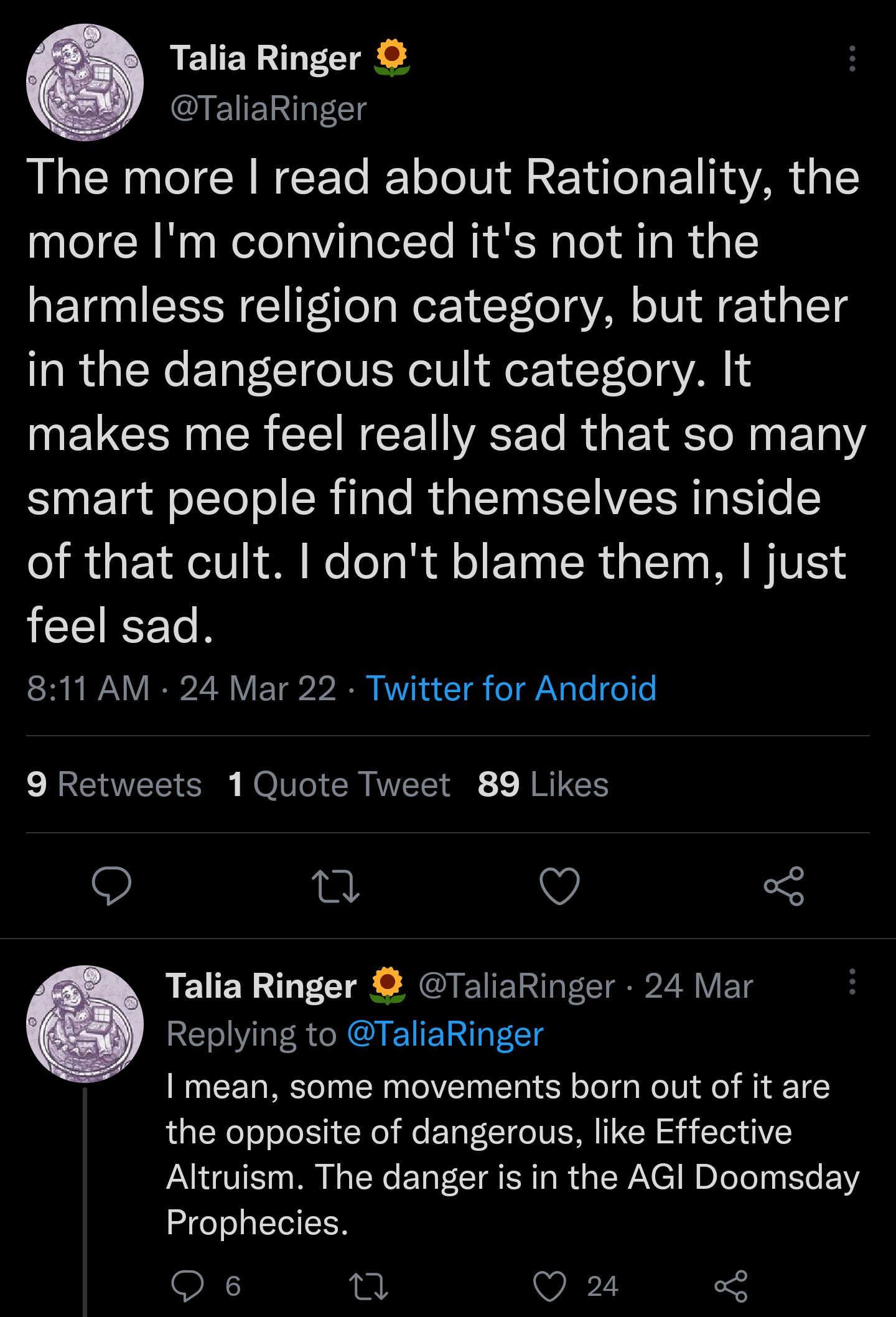



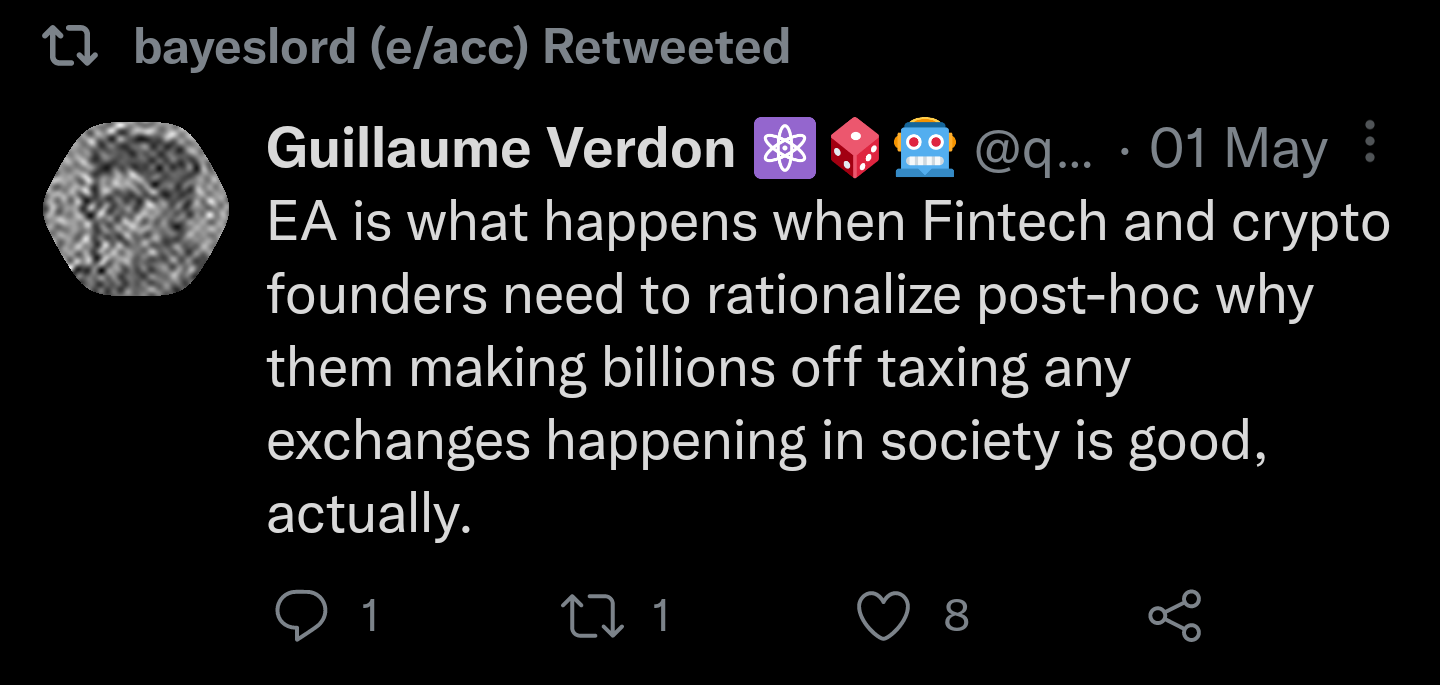


And how would God predict (with perfect fidelity) what humans would do without simulating them flawlessly? A truly flawless physical simulation has no less moral weight than "reality" -- indeed, the religious argument could very well be that our world exists as a figment of this God's imagination.